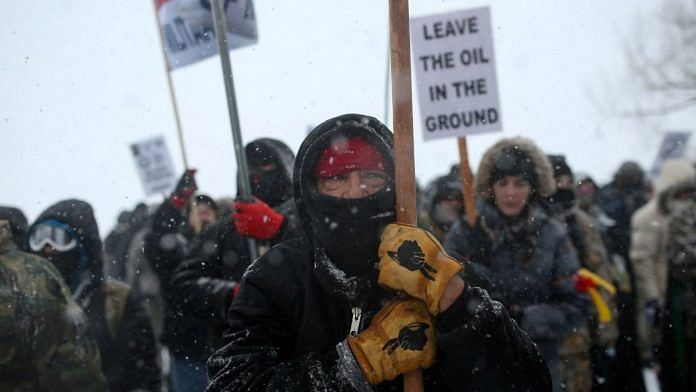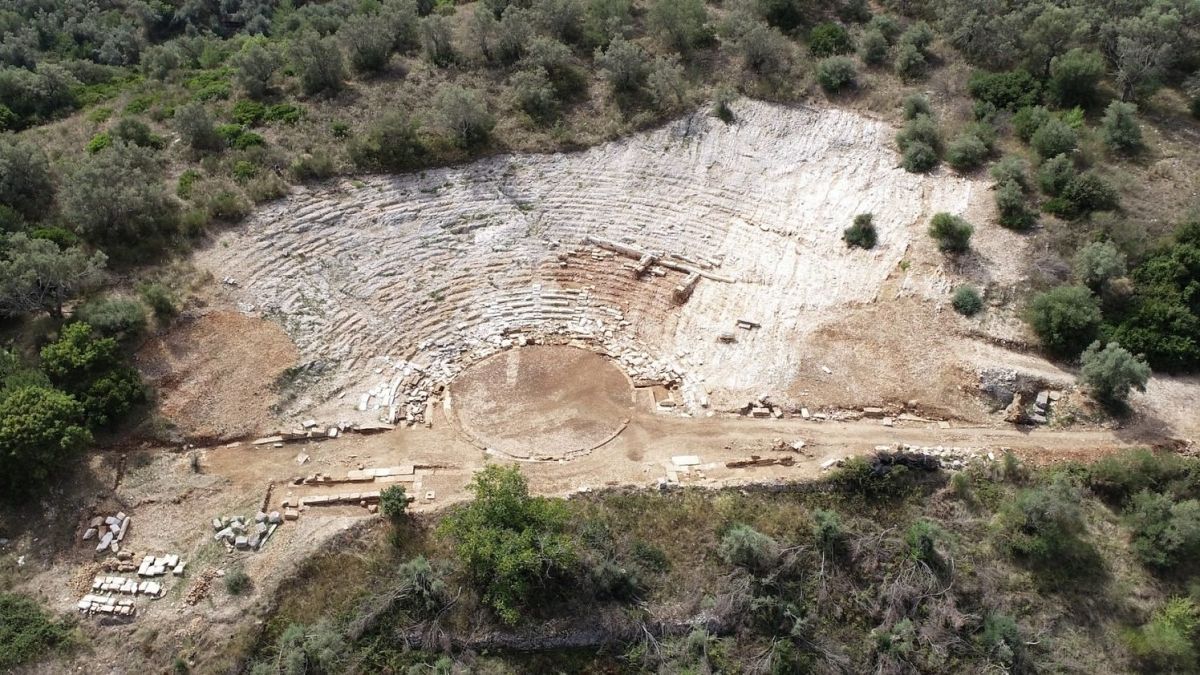New Delhi: A US court has ordered Greenpeace to pay more than $660 million in damages for defamation and other claims brought by Energy Transfer, the American company behind the contentious Dakota Access Pipeline, in a ruling that could potentially shut down the environmental advocacy group’s operations in the US. The North Dakota court’s verdict delivered Wednesday follows allegations that Greenpeace’s role in the 2016-2017 protests against the pipeline had delayed its construction, driven up costs and damaged Energy Transfer’s reputation, according to the oil company’s lawsuit. The lawsuit accused Greenpeace International (based in the Netherlands), Greenpeace USA, and its funding arm, Greenpeace Fund Inc.
, of trespass, nuisance, civil conspiracy and other offenses. The Texas-based company argued that Greenpeace played a major role in organising and funding the protests, which it claims led to substantial financial losses and construction delays. The company had initially sought $300 million in damages, but the jury’s ruling far exceeded that amount.

Greenpeace, however, maintains that its involvement was minimal. The environmental organisation has insisted that the protests were largely led by grassroots activists, particularly the Standing Rock Sioux Tribe, and that Greenpeace merely provided logistical support and training for non-violent demonstrations. The group argues that the lawsuit is part of a broader effort by Energy Transfer to suppress criticism of the oil industry.
The historic protests against the Dakota Access Pipeline nearly a decade ago were led by the Standing Rock Sioux Tribe, which opposed the pipeline over concerns about potential risks to their water supply and sacred lands. Despite the pipeline becoming operational in 2017, Energy Transfer pursued further legal action against Greenpeace, first filing a federal lawsuit for $300 million, which was dismissed, before bringing the case to state court in North Dakota. Also read: Climate change adding 50 to 80 warmer nights each year to Indian summers, study finds At the core of Energy Transfer’s argument is that Greenpeace’s involvement in the protests significantly hindered the construction process.
In closing arguments, Energy Transfer’s attorney, Trey Cox, accused Greenpeace of turning a local issue into a global campaign to promote its own agenda. He argued that Greenpeace deliberately delayed the project, resulting in $340 million in increased costs, and sought punitive damages on top of those base costs, New York Times reported. “Greenpeace took a small, disorganised, local issue and exploited it to shut down the Dakota Access Pipeline and promote its own selfish agenda.
They thought they’d never get caught,” he said. Greenpeace, on the other hand, has denied any responsibility for the delays and disputes Energy Transfer’s claims. The organisation argues that its actions, including providing supplies and training for protest tactics, were a part of its broader mission of environmental advocacy.
Greenpeace International, based in Amsterdam, stated that its only involvement was signing a letter to banks expressing opposition to the pipeline, a letter that was supported by several other organisations globally. Throughout the trial, Greenpeace’s legal team argued that the lawsuit was an attempt to punish the organisation for its peaceful protests and its criticism of the oil industry. One of the central issues during the trial was the potential bias of the jury, given the strong presence of the oil and gas industry in North Dakota.
Greenpeace lawyers attempted to have the trial moved to Fargo, where the protests had not been as disruptive, but their request was denied. Despite these concerns, the jury deliberated for three days before returning its verdict, finding Greenpeace Inc. liable for the majority of the damages.
Energy Transfer, one of the largest pipeline companies in the US, faced widespread protests in 2016-2017 over the construction of the Dakota Access Pipeline, which activists argued threatened sacred land and the local water supply. The Standing Rock Sioux Tribe sued to halt the project, with support from various tribes, environmentalists, and public figures, including Robert F. Kennedy Jr.
and Tulsi Gabbard, both now in President Trump’s cabinet. However, the protests occasionally turned violent and alienated the surrounding Bismarck-Mandan community, the New York Times reported. While the trial focused on Greenpeace’s involvement, the case highlights broader issues surrounding Indigenous rights and environmental justice.
The protests against the Dakota Access Pipeline were not only about protecting the environment but also about defending the rights of Indigenous communities to safeguard their land, water and cultural heritage from corporate exploitation. The lawsuit invokes a new European Union directive aimed at protecting public participation and preventing Strategic Lawsuits Against Public Participation (SLAPP). North Dakota is reportedly one of the few states in the US that lacks anti-SLAPP protections.
(Edited by Sugita Katyal) Also read: Heat is unequal. Summer water crisis affects Geeta Colonies, not Vasant Vihars var ytflag = 0;var myListener = function() {document.removeEventListener('mousemove', myListener, false);lazyloadmyframes();};document.
addEventListener('mousemove', myListener, false);window.addEventListener('scroll', function() {if (ytflag == 0) {lazyloadmyframes();ytflag = 1;}});function lazyloadmyframes() {var ytv = document.getElementsByClassName("klazyiframe");for (var i = 0; i < ytv.
length; i++) {ytv[i].src = ytv[i].getAttribute('data-src');}} Save my name, email, and website in this browser for the next time I comment.
Δ document.getElementById( "ak_js_1" ).setAttribute( "value", ( new Date() ).
getTime() );.
Environment

What’s the Dakota Access Pipeline case that has left Greenpeace facing $660 mn in damages

The lawsuit accuses Greenpeace International, Greenpeace USA, and its funding arm, Greenpeace Fund Inc, of trespass, nuisance, civil conspiracy and other offenses.















